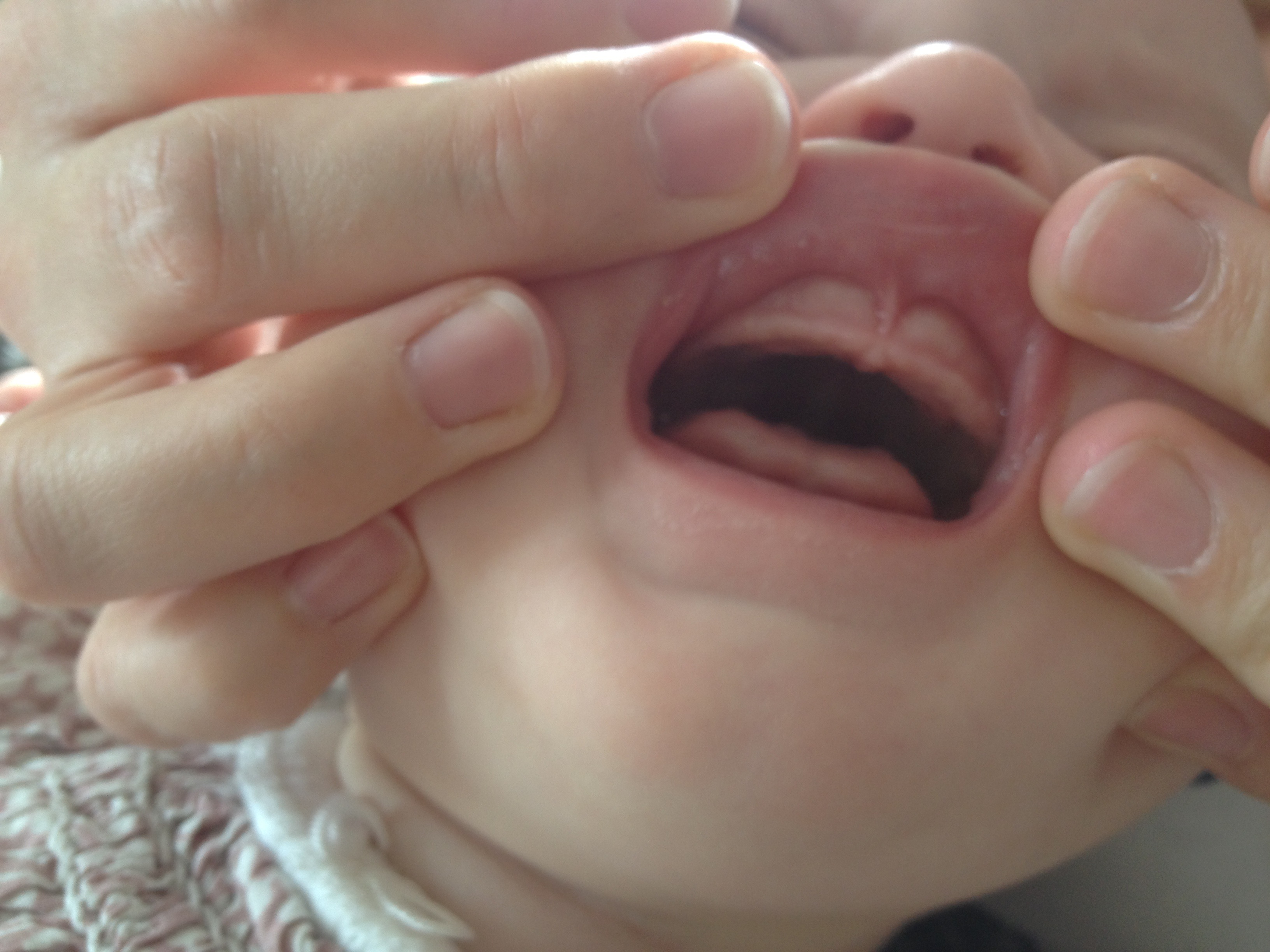Question & Answer - Breastfeeding
Why does lip-tie cause pain and discomfort during breastfeeding?January 2014 |
|||
|
ANSWER FROM: Dr. Lawrence Kotlow, Pediatric Dentist in Albany, NY
Breastfeeding your infant should not be a nightmare of pain and discomfort. It should be an enjoyable experience for both mother and baby. While tongue-tie is a common cause of breastfeeding and latch difficulties, there is another oral structure that can also contribute to latch problems. Inside the center of the upper lip is a small membrane between the lip and the gum called the maxillary labial frenum. If this membrane is tight or restricted, it is known as a lip-tie. When you look at this tissue, it actually attaches the upper lip directly to the oral mucosa of the upper gum. It is does not function in any useful fashion, and when revised (i.e., released by laser) it is of little future significance. When the maxillary labial frenum is attached very tightly and into (or above – i.e., anterior papilla) the area where the teeth will eventually erupt, it may prevent a breastfeeding infant from developing a good latch. It can stop the infant from trying to flange the upper lip adequately during breastfeeding. Therefore, the infant may purse the lips instead, resulting in an ineffective latch. Future problems can also develop from a maxillary lip-tie (i.e., labial frenum). It may contribute to:
Maxillary labial (i.e., upper lip) frenum restrictions may occur by themselves or in conjunction with tongue-ties. They can easily be revised using dental lasers in a dental office without the need of an operating room or general anesthesia. All too often parents complain when lingual (i.e., tongue) and/or maxillary labial frena are not diagnosed as possible causes for a mom’s inability to comfortably and effectively breastfeed. To quote one parent: “It is very annoying that tongue-tie wasn't found until he was 4 weeks and after a nightmare few weeks of breastfeeding. Once diagnosed though, it was such a quick and easy thing to get snipped.” Unfortunately, a restricted maxillary labial frenum (i.e., upper lip-tie) is often overlooked or ignored even when a tongue-tie is revised and breastfeeding remains uncomfortable. Those individuals who state “most abnormal frenum attachments will resolve or go away by themselves” are incorrect. The result is continued pain for moms, and eventually these infants give up nursing. Mothers who experience pain, mastitis, thrush, cracked or bleeding nipples or a newborn who fails to gain weight, is poorly latched onto the mother’s breast, or shows signs of reflux and/or colic should have their infants evaluated by someone experienced with breastfeeding problems. These professionals include lactation consultants, doulas, specially trained speech-language pathologists or occupational therapists, and pediatric dentists. For further information on this topic, please read my recently published article: Kotlow, L. A. (2013, Nov. 29). Diagnosing and understanding the maxillary lip-tie (superior labial, the maxillary labial frenum) as it relates to breastfeeding. Journal of Human Lactation, 29 (4), 458-464. doi: 10.1177/0890334413491325 Dr. Lawrence Kotlow is a pediatric dentist known internationally as an expert in assisting mothers who have breastfeeding difficulties due to abnormal frenum attachments. He is a founding member of the International Affiliation of Tongue-Tie Professionals. His website is www.kiddsteeth.com. |
|||
|
|
|
|
|
|
|
|
